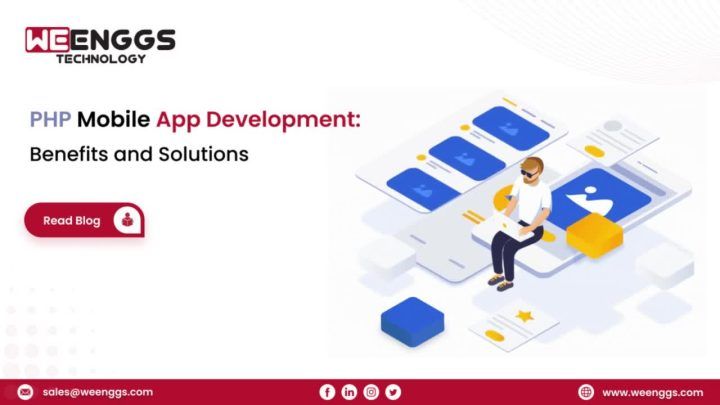In today’s digital age, mobile applications have become an essential part of our lives. They provide convenience, entertainment, and solutions to everyday challenges. When it comes to mobile app development, PHP (Hypertext Preprocessor) is a powerful and versatile programming language that offers numerous benefits. In this blog, we will explore the advantages of PHP mobile app development and discuss real-world examples of successful PHP-based mobile apps.
Benefits of PHP Mobile App Development:
Cost-effectiveness:
PHP is an open-source language, meaning it is free to use and doesn’t require expensive licensing fees. This makes it an ideal choice for startups and small businesses with budget constraints.
Rapid Development:
PHP has a vast ecosystem of frameworks and libraries, such as Laravel, Symfony, and CodeIgniter, which facilitate rapid app development. These frameworks offer pre-built modules, code reusability, and extensive community support, enabling developers to build apps quickly.
Platform Independence:
PHP is platform-independent, allowing developers to create mobile applications that can run seamlessly on various platforms like iOS, Android, and Windows. This cross-platform compatibility saves time and effort as developers can write code once and deploy it across multiple platforms.
Integration Capabilities:
PHP integrates easily with other technologies, databases, and APIs, making it effortless to connect mobile apps with third-party services, social media platforms, payment gateways, and more. This integration flexibility enhances app functionality and user experience.
Scalability:
PHP mobile apps can scale effortlessly to accommodate increasing user demands. With PHP’s modular architecture, developers can add or modify features as needed without disrupting the entire application, making it adaptable to evolving business requirements.
Examples of Successful PHP Mobile Apps:
Facebook:
The world’s largest social media platform, Facebook, was initially developed using PHP. The PHP framework allowed for quick prototyping and efficient scalability, enabling Facebook to grow rapidly while delivering a seamless user experience.
WordPress:
WordPress, the popular content management system, offers mobile apps for both iOS and Android. These apps leverage PHP to power their backend and provide users with an intuitive interface for managing websites on the go.
Slack:
Slack, the widely used collaboration and communication platform, relies on PHP for its mobile app development. PHP’s versatility and robustness enable Slack to handle millions of users and deliver real-time messaging functionality.
Moodle:
Moodle, an open-source learning management system, utilizes PHP for its mobile app development. With PHP, Moodle offers a seamless learning experience across different devices, allowing students and educators to access course materials and interact with each other effortlessly.
Conclusion:
PHP mobile app development brings numerous benefits, including cost-effectiveness, rapid development, platform independence, integration capabilities, and scalability. As exemplified by successful apps like Facebook, WordPress, Slack, and Moodle, PHP enables developers to create feature-rich, cross-platform applications that cater to the modern user’s needs.
If you’re considering building a mobile app, PHP should be on your radar. Its vast ecosystem, strong community support, and flexibility make it a valuable tool for creating mobile apps that deliver an outstanding user experience. Embrace PHP and unlock the potential to develop innovative, high-performing mobile applications.
Remember, PHP is continually evolving, so stay up to date with the latest frameworks and best practices to leverage its full potential in mobile app development.
Weenggs Technology has an expert team of App Developers who can help you with the best and most affordable solution for your business. Talk to us at sales@weenggs.com


